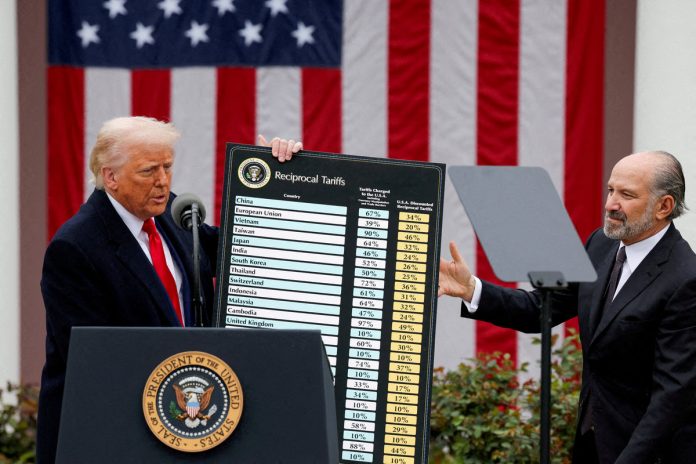WASHINGTON: US tariff negotiations with major trading partners are reaching a critical phase as the August 1 deadline approaches.
The twice-delayed deadline could see higher duties imposed on economies with significant trade surpluses with the US, unless last-minute agreements are reached.
The Biden administration has already secured deals with the European Union, Britain, Vietnam, Japan, Indonesia, and the Philippines.
The EU agreement, announced Sunday, reduces tariffs on European exports to the US from a threatened 30 percent to 15 percent.
South Korea faces heightened pressure as it races to finalize a deal.
A government source told AFP that Tokyo’s successful agreement has increased urgency for Seoul.
Reports suggest South Korea may propose over $100 billion in investments, with major firms like Samsung and Hyundai Motor involved.
National Security Advisor Wi Sung-lak confirmed negotiations are in their “final and most crucial phase” to avoid a 25 percent tariff.
India remains cautiously optimistic. Commerce Minister Piyush Goyal expressed confidence in reaching a deal, dismissing concerns over sticking points. However, local reports indicate chances of an interim agreement before August 1 are fading.
Taiwan is working hard to secure favorable terms, with Premier Cho Jung-tai stating officials are negotiating around the clock. Vice President Hsiao Bi-khim emphasized efforts to protect Taiwan’s industrial interests and deepen US cooperation.
Canada and Mexico face uncertainty. While spared from initial “reciprocal” tariffs, both nations could see duties rise—30 percent for Mexico and 35 percent for Canada—if no deal is reached. Mexican President Claudia Sheinbaum vowed to do “everything” possible to avoid the hike.
Brazil braces for political fallout. A 50 percent tariff on Brazilian exports, set for August 1, appears unlikely to be averted. The move is seen as politically motivated, with Trump citing Brazil’s treatment of his ally, former president Jair Bolsonaro.
With just days left, negotiations remain fluid. The outcome will shape global trade dynamics in the coming months. – AFP








